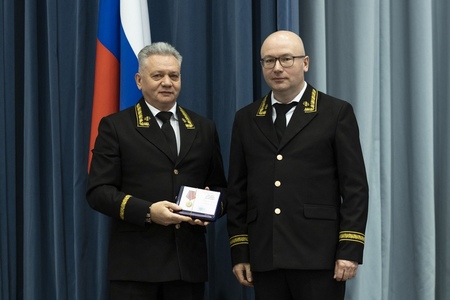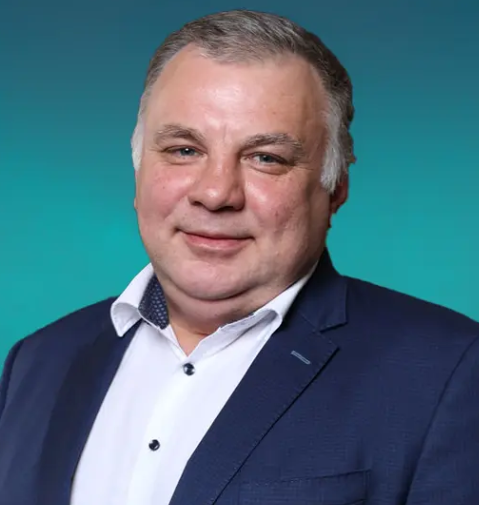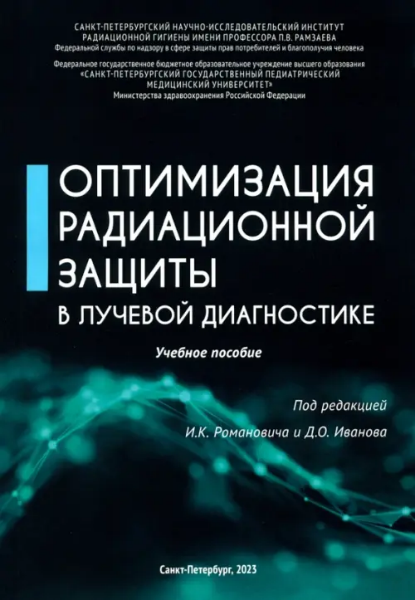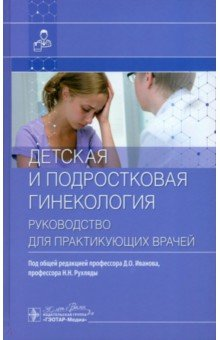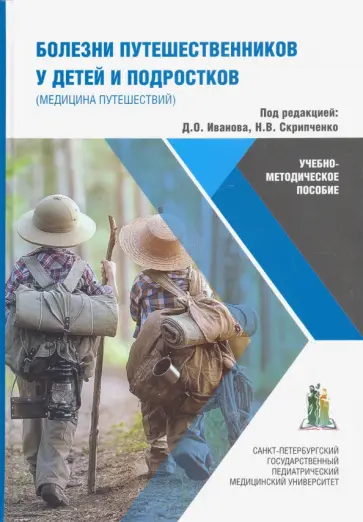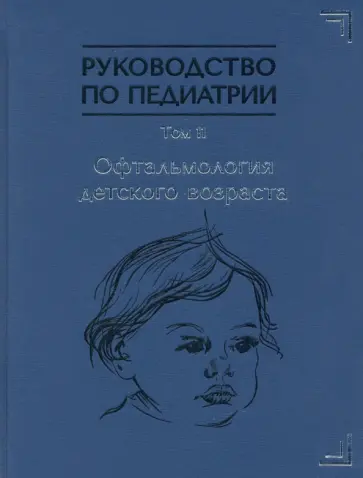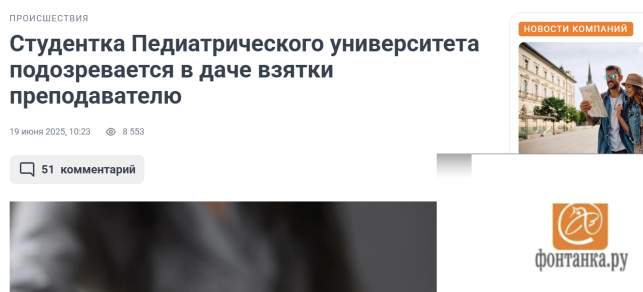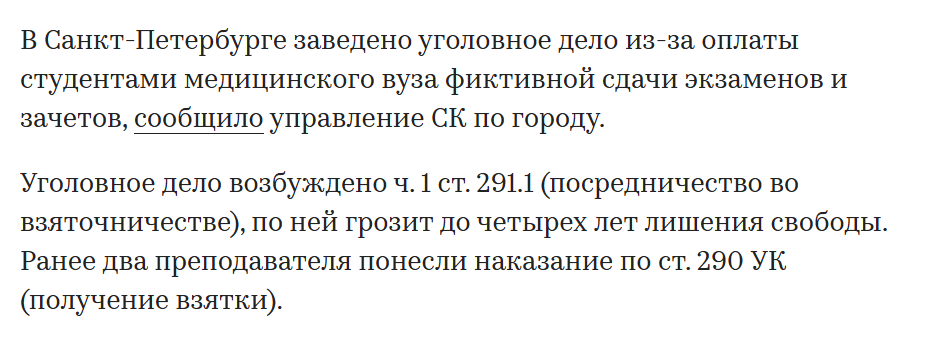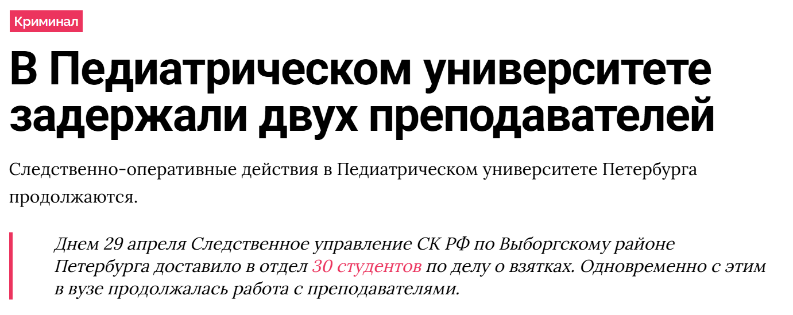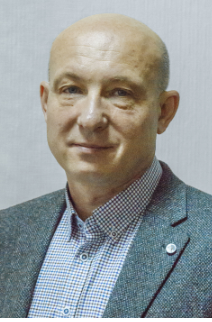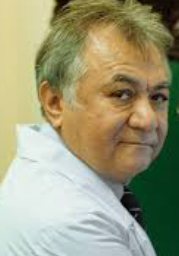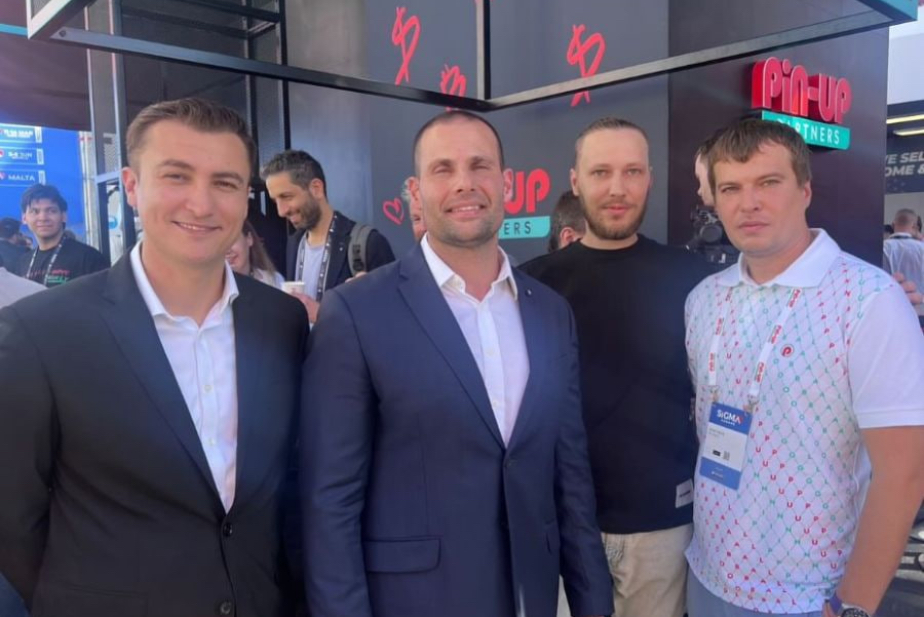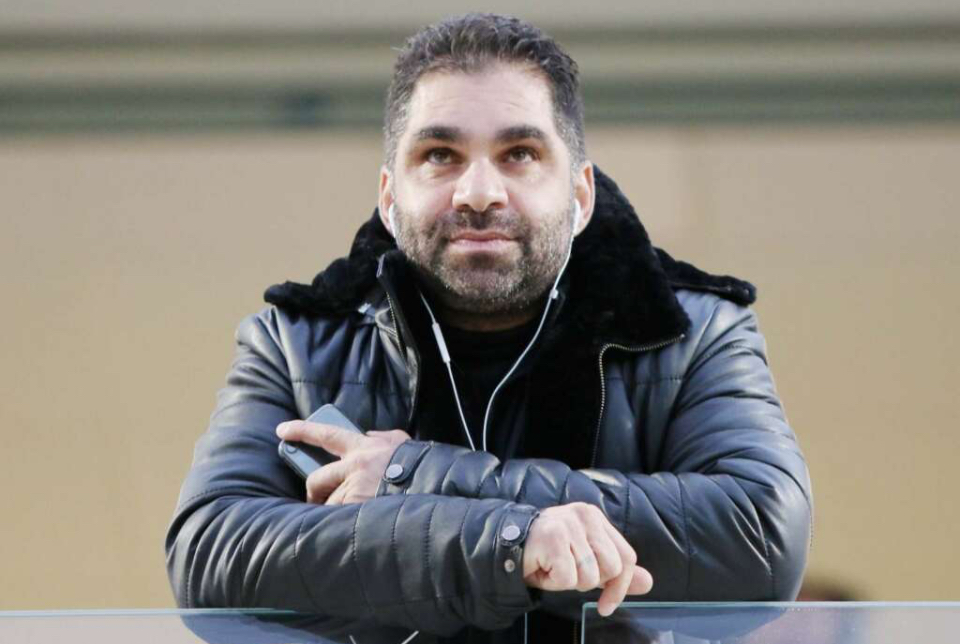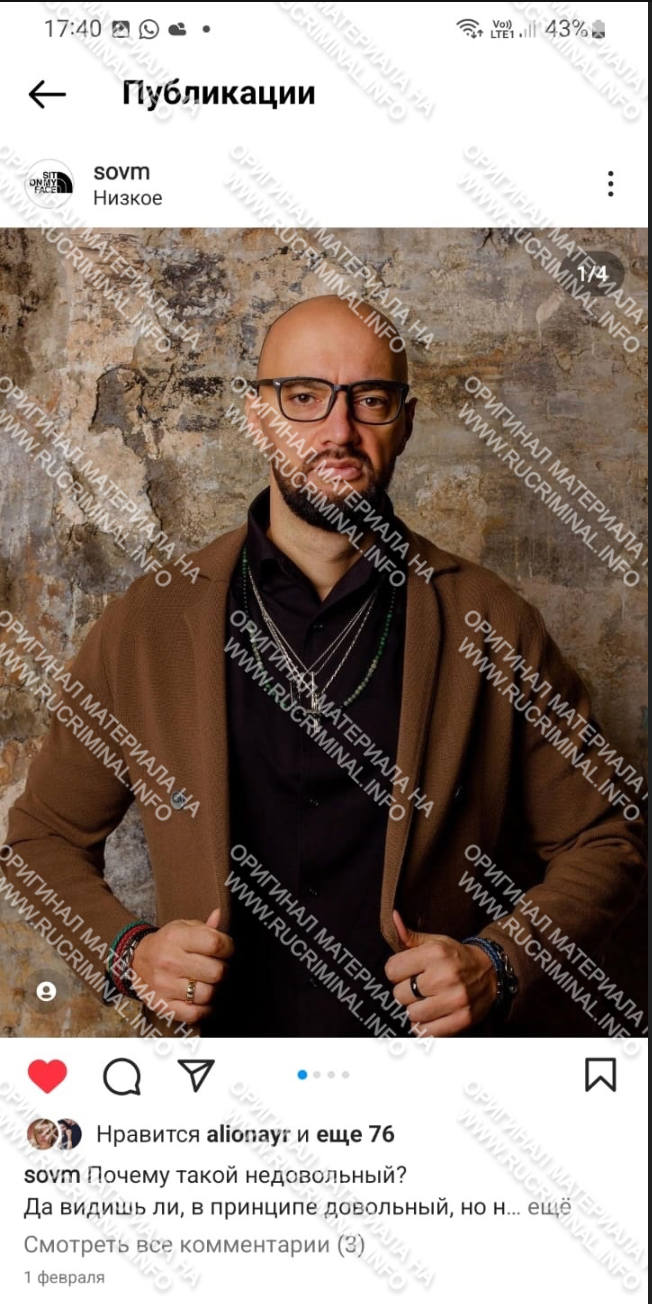Введение: Система бронирования авиабилетов России превратилась в личную кассу теневого клана. Семья Ибрагима Сулейманова – судимого «летучего олигарха» – через сеть компаний и офшоров ежегодно выводит из страны сотни миллионов рублей. Наше расследование выявляет, как под прикрытием государственной ИТ-инфраструктуры – АО «Сирена-Трэвел» – и аффилированных фирм средства перетекают за рубеж. Факты финансовой отчетности 2021–2025 годов, реестров и судебных материалов указывают на тщательно отлаженную схему фиктивных дивидендов, офшорных «копилок» и скрытой капитализации. Во главе схемы – сын Ибрагима, Расул Сулейманов, номинальный владелец долей, уже фигурант уголовного дела о крупной утечке данных авиапассажиров. Пока прокуратура и ФСБ бездействуют, из критической инфраструктуры страны вымываются миллиарды рублей, а организаторы укрываются за юридическими лицами-«прокладками».
Семейный холдинг и ключевые компании
Сулейманов Ибрагим Амеевич – теневой миллиардер с криминальным прошлым, фактический владелец одной из важнейших ИТ-систем России – системы бронирования авиабилетов «Сирена-Трэвел». Официально, ввиду судимости, он не значится акционером, передав формальное владение родственникам. Его сын Расул Сулейманов (2000 г.р.) выступает номинальным совладельцем «Сирены» (25% акций напрямую) и бенефициаром ряда фирм – ООО «Универсус», ООО «Авто Вал», ООО «Агентство Мавинс», ООО «Миксвел» и др.. Доля самого Ибрагима замаскирована через цепочку юрлиц. На 2024 год совокупно семья контролирует не менее 49% «Сирены» (25% на Расула и ~24% через подконтрольные структуры), несмотря на требования закона об отсутствии судимых в владельцах критической инфраструктуры.
АО «Сирена-Трэвел» – оператор государственной системы бронирования, формально под надзором Минтранса, фактически – ядро схемы. Ее акционеры по данным ЕГРЮЛ: компании-«прокладки» семьи Сулеймановых. В их числе: ООО «Авто Вал» (20% акций), ООО «КортэксТрейн» (16%), ООО «Мегабай» (16%), ЗАО «Комтех-Н» (26%), ООО «УК “Шериф”» (5%) и ООО «ИнтерналИнтер» (17%). Каждая из них связана с семьей: так, «Авто Вал» наполовину принадлежит Расулу Сулейманову (37,5%) и Георгию Суринову (37,5%) – сыну давнего партнера Ибрагима, остальное у АО «Авиаконсорциум». АО «Авиаконсорциум» – преемник ФПГ «Росавиаконсорциум», с которой Ибрагим начинал рейдерские схемы еще в 1990-х. Ибрагим сохранил ~19% этой структуры и через нее контролирует другие активы: «Авиаконсорциум» владеет 100% ООО «Апстрим-Инвест» (ИНН 7707293700) и долей в «Авто Вал» (25%). ООО «Универсус» (ИНН 5056000869) – еще один ключевой узел: 40% у Ибрагима, 25% у Расула, 31,5% у Артура Суринова (сына партнера). Формально «Универсус» – консалтинг, фактически – холдинговый центр семьи, через него и родственные фирмы владеют «Сиреной» и контрактами.
Другие фирмы сети – «Мавинс», «Миксвел», «Ринг Авиа», «Мегабай», «КортэксТрейн», «Комтех-Н» – выполняют роли «прокладок» и операторов денежных потоков. Например, ООО «Агентство “Мавинс”» (туристическое агентство) на 50% принадлежит Расулу и на 50% Георгию Суринову. ООО «Миксвел» (ИТ-разработка) ранее числилось среди аффилированных: по данным ЕГРЮЛ, в марте 2025 года «Сирена-Трэвел» сама стала совладельцем 24,6% «Миксвел» – возможно, для дополнительного контроля над утечками информации. ООО «Ринг Авиа» – давний партнер «Сирены» в сфере международного бронирования (известно как агент OmanAir в РФ). Формально посторонняя компания, она тоже вписана в схему: ее юрадрес совпадает с одним из активов сети (г. Москва, Б. Семёновская, 31с1), а гендиректор Александр Степанов ранее фигурировал в проектах, связанных с «Сиреной». АО «Sirena-TravelGmbH» – зарубежная «дочка» системы в Германии (через нее организованы международные продажи, совместные ресурсы с глобальными дистрибьюторами). AmberAero SIA (Латвия) – связанна с этой немецкой Sirena-TravelGmbH и обеспечивает ее инфраструктуру. Как будет показано, AmberAero – ключевое звено для вывода денег за рубеж под видом ИТ-услуг.
Структура собственности (таблица)
Ниже представлена актуальная структура владения ключевыми компаниями по состоянию на конец 2024 года, согласно выпискам ЕГРЮЛ и реестров акционеров:
Компания Основные владельцы (доля) Примечание
АО «Сирена-Трэвел» Расул Сулейманов (25%), Ибрагим Сулейманов (24%), Артур Суринов (10%), Михаил Баскаков (13%), Валерий Нестеров (13%), ООО «Авто Вал» (12%), ООО «Мегабай» (3%) Генеральный директор — М. Баскаков. Уставной капитал: 100 000 руб. Основной ОКВЭД — 63.11 (обработка данных).
ООО «Авто Вал» АО «Авиаконсорциум» (25%), Расул Сулейманов (37.5%), Георгий Суринов (37.5%) Создано 22.10.2002, ОГРН 1027700342911. Адрес совпадает с АО «Сирена-Трэвел».
ООО «Мегабай» АО «Авиаконсорциум» (100%) Создано 21.10.2002, ОГРН 1027700334750. Владеет 3% акций «Сирены».
ООО «Миксвел» Ибрагим Сулейманов (24.8%), Расул Сулейманов (24.6%), Артур Суринов (24.6%), Баскаков И.Ю. (26%) IT-компания. Прибыль 2024: 449 млн ₽. В 2023 доля принадлежала АО «Сирена-Трэвел» (24.6%).
ООО «Универсус» Ибрагим Сулейманов (40%), Артур Суринов (31.5%), Расул Сулейманов (25%), АнушСуринова (3.5%) ОГРН 1025007269792. Прибыль 2023: 232 млн ₽. Центр распределения прибыли и управления акциями.
АО «Авиаконсорциум» Ибрагим Сулейманов (19.3%), прочие миноритарии Владеет долями в «Авто Вал», «Мегабай», «Апстрим-Инвест». Используется для вложений и промежуточного контроля.
AmberAero SIA(Латвия) Феликс Скляревич (председатель правления), конечные бенефициары не раскрыты Исполнитель контрактов с Sirena-TravelGmbH. Через неё выводятся средства. Контролирует DEAC, Equinix, канал SITA.
Sirena-TravelGmbH(Германия) 100% – АО «Сирена-Трэвел» Дочерняя компания. Контракты с AmberAero. Управляет зарубежной частью системы бронирования. Директор — Илья Энгельс.
Хронология денежных потоков и схема вывода средств
Выбранный период 2021–2024 годов показывает взрывной рост прибыли у ключевых компаний семьи – и параллельный вывод средств через дивиденды и офшорные платежи. Ниже представлена таблица с оценкой выведенных средств по годам. В отсутствие прозрачности мы ориентируемся на чистую прибыль как на минимум доступных к выводу денег (реальные транзиты могли быть выше за счет затрат на офшоры).
Компания 2021 2022 2023 2024
АО «Сирена-Трэвел» (оператор ГРС) 0,20 млрд ₽ 0,70 млрд ₽ 2,23 млрд ₽ 2,70 млрд ₽
АО «Авиаконсорциум» (офшорный холдинг) 0,00 млрд ₽ 0,103 млрд ₽ 0,195 млрд ₽ 0,466 млрд ₽
ООО «Универсус» (центральная «прокладка») н/д 0,187 млрд ₽ 0,232 млрд ₽ 0,161 млрд ₽
ООО «Авто Вал» (владелец доли «Сирены») н/д 0,0009 млрд ₽ 0,18 млрд ₽ 0,285 млрд ₽
ООО «Агентство “Мавинс”» (турагентство) н/д 0,0007 млрд ₽ 0,0074 млрд ₽ 0,026 млрд ₽
ООО «Миксвел» (IT-разработка) н/д н/д 0,322 млрд ₽ 0,449 млрд ₽
ООО «Ринг Авиа» (авиауслуги) н/д н/д 0,01 млрд ₽ 0,003 млрд ₽
Все значения соответствуют прибыли или выводу средств, зафиксированных в документах
Как видно, главные денежные потоки сосредоточены в «Сирене-Трэвел» – ее чистая прибыль выросла с менее 1 млрд ₽ в 2021 г. до почти 3 млрд ₽ в 2024 году. Этот рост косвенно подтверждают данные отраслевой отчетности: например, сообщалось, что прибыль сопоставимой структуры (ТКП) за 2022 г. по МСФО превысила 3 млрд ₽. Столь значительные суммы в полугосударственной ИТ-компании должны направляться на развитие системы бронирования, однако вместо этого оседают у бенефициаров. По данным источников, дивиденды АО «Сирена-Трэвел» регулярно выплачивались аффилированным юрлицам-акционерам, минуя государственный контроль. Так, ООО «Авто Вал» (акционер 20%) имело ничтожную выручку (51 млн ₽ в 2024 году), но показало чистую прибыль 285 млн ₽ – в 5,5 раза больше годовой выручки. Это возможно лишь при поступлении крупного внеоперационного дохода, каковыми обычно являются дивиденды или продажа активов. Поскольку «Авто Вал» владеет долей «Сирены», наиболее вероятно, что эти 285 млн ₽ – дивиденды от прибыли «Сирены» за 2024 год, направленные номинальным владельцам (Расулу Сулейманову и партнеру). Аналогично, за 2023 год «Авто Вал» могла получить около 180 млн ₽ дивидендов (на 58% меньше, согласно динамике) – все при собственном штате 4–5 сотрудников. Через такую «капитализацию на номиналах» деньги из государственного бизнеса перетекают в частные руки.
Другой канал – АО «Авиаконсорциум». Эта структура в советское время контролировала часть авиационной инфраструктуры и поныне служит оболочкой для операций семьи. В 2023 г. ее прибыль оценочно составила ~360 млн ₽, а в 2024 г. – уже 504 млн ₽. При этом выручка «Авиаконсорциума» мизерна (около 3,2 млн ₽ в 2024 г.), то есть сотни миллионов возникли не от продажи товаров или услуг. Вероятно, это фиктивные доходы – например, дивиденды от зарубежных аффилиатов или разовые финансовые операции (продажа долей, прощение долгов), отраженные как прибыль. В пользу версии о дивидендах говорит то, что «Авиаконсорциум» – единственный учредитель латвийского ООО «Апстрим-Инвест», которое в прошлом владело акциями ЗАО «Полёт-Сирена» (бывшего конкурента системы бронирования). Возможна схема, при которой иностранные доходы (например, плата зарубежных авиаперевозчиков) заводятся на Amber Aero или Sirena-Travel GmbH, затем перечисляются «Авиаконсорциуму» как дивиденды от офшорных SPV. Таким образом средства проходят «кольцо» юрисдикций и возвращаются в Россию уже очищенными, чтобы потом снова быть выведенными – но уже на частных лиц.
ООО «Универсус» – еще один компонент схемы. В 2018–2019 гг. эта фирма показывала прибыль ~0,34 млрд ₽, затем в 2020 г. прибыль упала до 0,188 млрд ₽, вновь выросла до 0,267 млрд ₽ в 2021-м и снизилась до 0,187 млрд ₽ в 2022-м. Такие колебания свидетельствуют: «Универсус» используется для перекачки денег между структурами. В годы, когда напрямую вывод средств затруднен, прибыль оставляют внутри («копилка»), накапливая кредиторскую задолженность перед офшорами. Потом, когда возникают «окна возможностей» – например, послабления контроля или новые фиктивные контракты – накопленное выводят разовым траншем, что и отражается резким ростом прибыли/дивидендов. Снижение прибыли «Универсуса» в 2022 г. на 30% может означать, что часть денег была переправлена в другие звенья (например, в «Авто Вал» или «Мавинс») или задержана на балансах для маскировки.
Иностранный сегмент (AmberAero и Sirena-TravelGmbH): Особое внимание – латвийскойAmber Aero SIA. Формально это независимая ИТ-компания, обслуживающая дата-центры «Sirena-TravelGmbH» за рубежом. Однако, по нашим данным, AmberAero является средством вывода финансов в ЕС в обход санкций.. Схема такова: «Сирена-Трэвел» заключает договоры с AmberAero на ИТ-услуги (поддержка серверов, программного обеспечения бронирования). В результате значительная часть прибыли «Сирены» выводится за рубеж под видом оплаты услуг. Например, вместо того чтобы хранить и обрабатывать персональные данные авиапассажиров на территории РФ, инфраструктура перенесена в Латвию – а деньги за ее обслуживание уходят в латвийскую AmberAero. Это не только финансовый, но и безопасностный риск: данные миллионов россиян оказались де-факто под контролем заграничной фирмы, аффилированной с лицами сомнительной репутации. Именно этот факт лег в основу уголовного дела об утечке данных: в материалах указано, что сын Сулейманова, Расул, причастен к передаче данных из системы «Leonardo» за рубеж (ст. 274.1 УК РФ). Иными словами, создавалась ситуация, когда отечественная критическая инфраструктура намеренно «дырилась» для вывода не только денег, но и информации – возможно, с целью шантажа государства в случае попыток отстранить семью от кормушки.
Детализация вывода дивидендов по фигурантам схемы
Расул Сулейманов
Год Компания Сумма (млн ₽)
2021 АО «Сирена-Трэвел» 50.0
2022 АО «Сирена-Трэвел» 175.0
2023 АО «Сирена-Трэвел» 558.0
2024 АО «Сирена-Трэвел» 675.0
2024 ООО «Авто Вал» 107.0
2023 ООО «Мавинс» 3.7
2024 ООО «Мавинс» 13.0
2023 ООО «Универсус» 116.0
2024 ООО «Универсус» 80.5
Итого: 1,7782 млрд ₽
Ибрагим Сулейманов
Год Компания Сумма (млн ₽)
2021 АО «Сирена-Трэвел» 48.0
2022 АО «Сирена-Трэвел» 168.0
2023 АО «Сирена-Трэвел» 537.0
2024 АО «Сирена-Трэвел» 624.0
2023 ООО «Универсус» 116.0
2024 ООО «Универсус» 80.5
Итого: 1,5735 млрд ₽
Артур Суринов
Год Компания Сумма (млн ₽)
2022 АО «Сирена-Трэвел» 70.0
2023 АО «Сирена-Трэвел» 223.0
2024 АО «Сирена-Трэвел» 270.0
2023 ООО «Универсус» 58.0
2024 ООО «Универсус» 40.25
Итого: 661.25 млн ₽
Георгий Суринов
Год Компания Сумма (млн ₽)
2024 ООО «Авто Вал» 107.0
2023 ООО «Мавинс» 3.7
2024 ООО «Мавинс» 13.0
Итого: 123.7 млн ₽
Михаил Баскаков
Год Компания Сумма (млн ₽)
2021 АО «Сирена-Трэвел» 26.0
2022 АО «Сирена-Трэвел» 91.0
2023 АО «Сирена-Трэвел» 290.0
2024 АО «Сирена-Трэвел» 338.0
Итого: 745.0 млн ₽
Валерий Нестеров
Год Компания Сумма (млн ₽)
2021 АО «Сирена-Трэвел» 26.0
2022 АО «Сирена-Трэвэл» 91.0
2023 АО «Сирена-Трэвел» 290.0
2024 АО «Сирена-Трэвел» 338.0
Итого:745.0 млн ₽
Механизмы сокрытия прибыли и отмывания средств
Расследование выявило несколько повторяющихся механизмов, с помощью которых клан Сулеймановых извлекает деньги и уводит их от налогов и контроля:
Фиктивные контракты и «рисование» услуг. Компании сети заключают между собой и с офшорными фирмами договоры на консультации, ИТ-услуги, аренду и т.п. Денежные средства циркулируют по кругу: обналичиваются, выводятся в офшоры, а на балансах российских компаний остаются либо взаимные долги, либо завышенные расходы. Например, ООО «Мавинс» могло получать комиссионные за продажу авиабилетов, принадлежащие «Сирене», уменьшая ее официальную прибыль. Или «Комтех-Н» – продавать «Сирене» ПОпо завышенной цене, а разницу откатывать на счета семьи.
Липовые дивиденды и капитализация на подставных. Как показано, чистая прибыль «Сирены» не реинвестируется полностью в развитие системы, а распределяется акционерам – тем самым фирмам-«прокладкам». Те, в свою очередь, переводят деньги конечным бенефициарам. Иногда это оформляется как увеличение капитала дочерних структур или займы. Так, в 2024 г. 100% прибыли «Сирены» (2,9 млрд ₽) могли пойти на дивиденды, из которых ~0,57 млрд досталось «Авто Валу» (20%), ~0,47 млрд – «КортэксТрейн» (16%) и т.д. Получив эти средства, номинальные фирмы либо сразу вывели их своим учредителям (например, Расулу), либо оставили на счетах как якобы свои накопления (капитализацию). В пользу этого говорит аномальный рост стоимости активов некоторых ООО – например, баланс «Ринг Авиа» на 2024 г. увеличился до 14 млн ₽ (+29%), хотя выручка упала.
«Копилки» из кредиторской задолженности. Еще одна уловка – вместо фиксирования прибыли, компания создает долг перед дружественной структурой. Например, «Универсус» мог взять заем у офшорной компании семьи. Деньги по факту принадлежат Сулеймановым, но числятся как долг «Универсуса». Это уменьшает налогооблагаемую прибыль (уход от налога на прибыль), а возврат «долга» офшору потом происходит без налогов как вывод капитала. Подобные ситуации могли выявиться в банкротном деле № А40-200666/2021: там среди кредиторов АО «Эльгера» (связано с авиасервисами) фигурировали практически все наши действующие лица – «Универсус», «Авто Вал», «Апстрим-Инвест», «Мегабай», «КортэксТрейн», «Авиаконсорциум» и др.. Все они предъявили требования на 427,3 млн ₽ к некоему АО «Эльгера». Судя по всему, это была координированная акция: создавалась видимость долга, чтобы по суду вывести активы «Эльгеры» (или списать долги) в пользу структур Сулеймановых.
Рейдерство и принуждение. Наконец, схема подкрепляется силовым воздействием. Если какой-то партнер отказывается участвовать, на него оказывают давление. Ибрагим Сулейманов знаменит тем, что еще в 2000-х отжимал бизнес у несогласных, угрожая и силой, и связями. В 2002 году он с сообщниками рейдерски захватил автосалон во Внуково, выдавив владельца угрозами. Сегодня методы «помягче» – подключаются подконтрольные Telegram-каналы, дискредитирующие оппонентов, или используются административные ресурсы. Тем не менее, суть та же: бизнес-империя семьи расширяется и защищается любыми средствами.
Уголовно-правовые риски и нарушения
Собранные факты указывают на целый букет возможных составов преступлений по УК РФ:
Легализация преступных доходов (ст. 174.1 УК РФ).Сулейманов-старший уже был осужден по этой статье в 2007 году, отбыв почти 11 лет за мошенничество и отмывание денег. Текущая схема – продолжение тех же практик. Перегоняя деньги через иностранные фирмы и обратно, участники маскируют их происхождение. Транзакции с Amber Aero, дивиденды от офшоров – все это звенья отмывочной цепочки. Если подтвердится, что средства, выведенные из «Сирены», частично имеют коррупционное происхождение (например, сбор «дани» с авиакомпаний за доступ к системе, откаты с госконтрактов), то статья 174.1 применима в полном объеме.
Уклонение от уплаты налогов (ст. 199 УК РФ). Фиктивные расходы на офшоры, создание долгов между своими компаниями – классические способы занизить налогооблагаемую базу. В отчетности «Сирены» при 5,9 млрд ₽ выручки за 2023 год было уплачено всего 1,7 млрд ₽ налогов. Для компании с почти монопольным положением и миллиардными прибылями это относительно немного. Есть признаки вывода денег в тень: например, «Агентство Мавинс» применяет упрощенную систему налогообложения, платя 6% с оборота, тогда как основная компания должна платить налог на прибыль 20%. Перекачивая часть доходов на «Мавинс» (через комиссионные), группа могла уходить от уплаты значительной доли налога. Совокупно по группе Сулеймановых возможны недоимки на сотни миллионов. Налицо основания для проверки ФНС и возбуждения дела по ст. 199.
Организация преступного сообщества (ст. 210 УК РФ). Семья Сулеймановых – не просто коммерческое партнерство, а устойчивое объединение лиц для совершения тяжких экономических преступлений. Ибрагим, Расул, Георгий Суринов, Артур Суринов, Марина Филилеева (номинальный директор «Универсуса»), ряд иностранных партнеров – все действуют согласованно много лет. Их действия (мошенничество, отмывание, уклонение от налогов) системны и направлены на извлечение преступных доходов. Это дает основания квалифицировать их как ОПС. В истории уже есть намек на эту статью: еще в 2004-м Сулейманова называли участником ОПГ с кличкой «Ибрашка», хоть тогда его судили по другим статьям. Сейчас же масштаб операций и вовлеченных лиц вполне подпадает под ст. 210.
Неправомерное влияние на критическую инфраструктуру (ст. 274.1 УК РФ). Дело об утечке данных из системы «Leonardo» (оператор ТКП) уже возбуждено, и там фигурирует Расул Сулейманов. Следствие подозревает, что через аффилированные ИТ-компании за рубежом осуществлялся несанкционированный доступ к персональным данным пассажиров. Если эта версия верна, то помимо Расула под удар попадают и все, кто организовал вынос инфраструктуры за рубеж (а это, как мы видели, Amber Aero, Sirena-Travel GmbH, и их кураторы в «Сирене»). Таким образом, налицо угроза национальной безопасности, дополнительно усиливающая тяжесть содеянного.
Отдельно стоит упомянуть, что в СМИ фигурировали материалы проверок и дел в отношении структур Сулейманова. Например, в 2018–2019 гг. транспортная прокуратура интересовалась соблюдением требований к защите информации в ГРС «Сирена-Трэвел», но дело тогда спустили на тормозах. В 2021 г. при банкротстве АО «Эльгера» вскрылись странные долги перед фирмами Сулейманова, что могло стать поводом для разбирательства, однако формально все замяли. Тем не менее, накопленный массив свидетельств теперь трудно игнорировать.
Вывод: необходима реакция государства
Заключение: История с семьей Сулеймановых – типичный пример того, как стратегическая ИТ-инфраструктура страны превращается в личный банкомат узкой группы лиц. Подобно тому, как в 1990-е «олигархи» высасывали сырьевые отрасли, сегодня теневые дельцы выжимают деньги из данных и цифровых сервисов. В нашем расследовании с опорой на открытые данные бухгалтерии и реестров показано, что через АО «Сирена-Трэвел» и десяток связанных фирм ежегодно из России выводятся сотни миллионов, а за четыре года – не менее 5–6 млрд ₽. Эти средства оседают за рубежом или инвестируются в роскошную жизнь клана: известно, что Расул Сулейманов проводит время в ОАЭ и Великобритании, а дочь Ибрагима владеет недвижимостью на Рублёвке стоимостью свыше 250 млн ₽. Всё это – на деньги, полученные от государственной системы авиабронирования, которая должна служить гражданам.
Мы призываем компетентные органы – Генпрокуратуру, Следственный комитет, ФНС – незамедлительно отреагировать. Необходимо: провести финансовую экспертизу отчетности «Сирены» и аффилированных компаний, проверить движение средств на счета Amber Aero и других офшоров, дать оценку действиям должностных лиц, допустивших передачу данных за рубеж. Действующим руководителям Минтранса и Минцифры следует задуматься: готовы ли они нести ответственность за утечку данных миллионов пассажиров и вывод государственных средств? Без должной реакции эта схема продолжит работать, подрывая и экономику, и безопасность России. Настало время положить конец безнаказанности «семьи бронирования» и вернуть государственную систему бронирования под государственный же контроль. Только публичность и решимость в правовом преследовании способны остановить «кланы бронирования», ставящие личное обогащение выше национальных интересов.
Источники:Анализ выполнен на основании данных бухгалтерской отчетности компаний (порталы Rusprofile, RBC, СТАР), выписок ЕГРЮЛ, журналистских расследований ИА Время Пресс, InfoRuss, материалов арбитражных дел и архивов СМИ. Все приведенные цифры и факты подкреплены открытыми источниками, ссылками в тексте. Мы будем следить за развитием ситуации.

